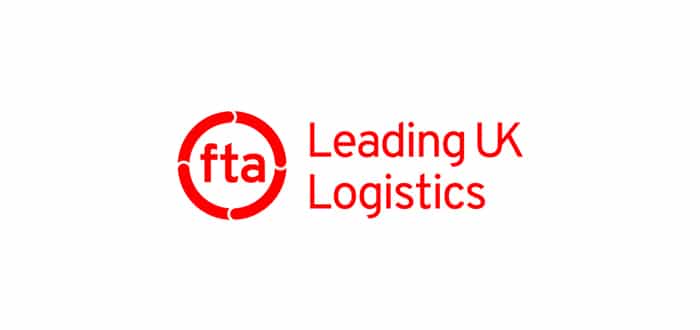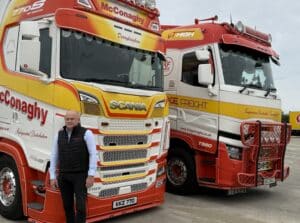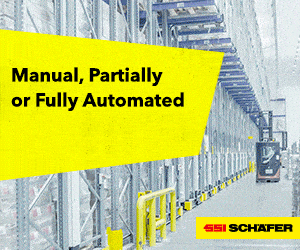FTA, the leading business organisation which represents the UK’s logistics industry, is deeply concerned by the lack of progress in Brexit negotiations and the rhetoric used on both sides in the past few days. With the threat of No Deal looming on the horizon, FTA is urging the UK and EU-27 leaders, including the European Commission, to prioritise urgent and co-ordinated mitigation measures, focused on trading areas which will not be able to function without agreements, like air freight and international haulage, to keep trade flowing freely after the UK leaves the EU.
“With only six months left until Brexit, it is fair to say that the negotiations have not progressed as far as we would have hoped. With so much political posturing playing out in the media, it is easy to forget that there are deeply integrated supply chains and jobs at risk if things go wrong,” says Pauline Bastidon , Head of European Policy at FTA. “In the event of No Deal – a scenario identified as a serious possibility by both sides – new agreements would be needed to allow trucks, planes and trains to cross the borders with the EU, keep goods flowing and shops and factories supplied.
“Border delays and disruptions, as well as additional costs and red tape are serious worries for our members, but the biggest showstopper of them all would be drastic reductions to the international movement of freight vehicles and planes. The main priority for the logistics sector is to obtain clarification on how these vehicles, planes and freight trains are to operate cross-border after Brexit; simply saying that things will be sorted out or that both sides will take unilateral measures in isolation, as suggested repeatedly on the EU side, is no insurance or reassurance for businesses which are currently negotiating contracts with no knowledge of whether or not they will be able to provide the services they are committed to without market access being permitted.
“Restrictions facing aviation in the event of a No Deal are well documented, but we need to add equally worrying restrictions to international haulage to the mix. Vehicles travelling to and from Europe, regardless of where transport companies are registered, will need to have the right to access both the UK and EU haulage markets, if only to transport goods cross-border. In other words, in the absence of a liberalised arrangement with continued recognition of operator licensing on both sides of the border, permits would be needed.
“The only system readily available now would only cover 2-5% of the industry’s needs: the 2019 quota for the UK is restricted to 1,224 annual permits, which would have to be carried on a moving vehicle at all times, with similar numbers available the other European countries. That number pales into insignificance when you consider that up to 16,000 vehicle movements take place across the Dover Straits every day. Without a significant improvement in the planned number of accepted permits for HGVs travelling across the border, and with equally drastic, if not bigger, restrictions facing air and rail freight in a No Deal scenario, the options for the logistics sector will be severely limited.
“Our plea is for both sides to start working on contingency plans and mitigating measures for transport as an urgent priority, so that businesses can rely on a co-ordinated plan and legal certainties, even in the event of a No Deal outcome. The logistics sector is a problem solver, but there is only so much we can do if we are forced to approach this blindfolded and with our hands tied. Equally, both sides should recognise the need for co-ordinated contingency plans and agreed solutions allowing trains, trucks and planes to cross the border after Brexit. These solutions need to be worked on and agreed now, not at the eleventh hour, while trying to find a more sustainable solutions for the overall negotiations. Our members need tangible answers, not political theories.”
Efficient logistics is vital to keep Britain trading, directly having an impact on more than seven million people employed in the making, selling and moving of goods. With Brexit, new technology and other disruptive forces driving change in the way goods move across borders and through the supply chain, logistics has never been more important to UK plc. A champion and challenger, FTA speaks to Government with one voice on behalf of the whole sector, with members from the road, rail, sea and air industries, as well as the buyers of freight services such as retailers and manufacturers.
This content brought to you by
About Logistics UK
Who we are?
FTA are one of the biggest business groups in the UK, supporting, shaping and standing up for efficient logistics. We are the only organisation in the UK that represents all of logistics, with members from the road, rail, sea and air industries, as well as the buyers of freight services such as retailers and manufacturers whose businesses depend on the efficient movement of goods.
Why do we exist?
An effective supply chain is vital to Keep Britain Trading, directly impacting over 7 million people employed in making, selling and moving the goods that affect everyone everywhere. With Brexit, technology and other disruptive forces driving changes in the way goods move across borders and through the supply chain, logistics has never been more important to UK PLC.
What do we do?
As champions and challengers, FTA speaks to Government with one voice on behalf of the whole sector, greatly increasing the impact of our messages and achieving amazing results for Members.
Media Contact:
Rona Hunnisett Link
Featured Media
Future Logistics Conference in 6 minutes! Link














